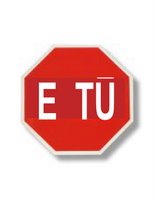Back of the bus
 Some commentators and apologists for European assimilation don't seem to understand that equality means equal in status - not a heirarchy of strata. Why should one official language have to be qualified with another - but only one way? They ought to be fully interchangeable. Why should ignorance be condoned in this day and age?
Some commentators and apologists for European assimilation don't seem to understand that equality means equal in status - not a heirarchy of strata. Why should one official language have to be qualified with another - but only one way? They ought to be fully interchangeable. Why should ignorance be condoned in this day and age?NZ Herald:
When a Maori immersion primary school in Rotoiti raised money for a new bus, it didn't think twice about what to have painted on its side. Hawea Vercoe, tumuaki [principal] of Te Kura Kaupapa Maori o Te Rotoiti thought "kura" extremely apt, given it was the Maori word for school.
However, after the signs were completed a month ago, Mr Vercoe was told by Land Transport that was illegal, as all school buses must have the word "school" clearly visible on their fronts and backs for safety reasons.
Mr Vercoe was now questioning how official an official language of the country really was, given Maori formally gained that status in the 1987 Maori Language Act.
He said the local community was backing what he regards as the school's right to use the word kura and was not interested in a suggested compromise that the word be used alongside school.
"Our tamariki are very proud of their new bus and they are also very proud of their kura sign on it."
Dumb fuckin' Abos think they're equal? The first lesson the little kiddies get about cultural oppression by the Crown - get used to it. "Why can't we have our own language on our own bus?" the children ask. Because of something called racism... when you get treated like a foreigner in your own country... How can you explain that to a child? Leave it to a foreigner Pakeha to try:
 Land Transport Safety Authority spokesman Andy Knackstedt said the concern was for children's safety.
Land Transport Safety Authority spokesman Andy Knackstedt said the concern was for children's safety.It was important motorists recognised school buses and took care when passing them, given children's unpredictability. [...] Mr Knackstedt said the transport legislation was very specific but could allow the option of using both the words school and kura on the buses.
And a slithering Labourite kupapa to collaborate in it:
Labour MP Shane Jones, whose children had attended kura kaupapa schools in the Far North, said that was a sensible compromise. [...] Mr Jones said he did not think that using the word school alongside kura diminished the visibility of te reo.
The sensible compromise (if one was needed) would be for all signs to be bilingual not just ones for the kura. The word is "kura" you ignorant fuckheads. This is where Maori people live isn't it? This is Aotearoa isn't it? This is 2006 isn't it?













4 Comments:
Many tourists also don't know English either!
Symbols are replacing words at the moment too - "give way" on the road is now just a white triangle - that crept in very fast over the last year.
There are signs around Lyttleton in Russian because of the port users. I guess Akaroa would have French signs (?).
I noticed at the Rugby (Saturday before last) that the Irish National Anthem, "Ireland's Call," was sung entirely in English. Why? I thought they won their independence in 1922.
To b'sure, to b'sure.
You're right, more NZers should learn more maori. Myself included.
It is unrealistic to expect the two languages to be 'fully interchangeable' as two hundred years of the primacy of English use cannot be erased so quickly.
But it is realistic to expect NZers to be able to recognise more than a few basic words.
There is no need to have both 'kura' and 'school' on the bus as the symbolic value of the yellow and black is known by all anyway. Only an idiot would not then make the connection that kura means school.
With regard to your remarks about the Irish rugby team, maybe they sing it in English because most Irish don't know Irish.
If I recall correctly, in the 2001 census more than half said they couldn't speak the language, nearly two-thirds said they never used it, and only about 10%, three-quarters of them school children, said they used the language daily.
More on the topic, how many NZers don't know the meaning of kura? Very few, I would have thought.
Post a Comment
<< Home